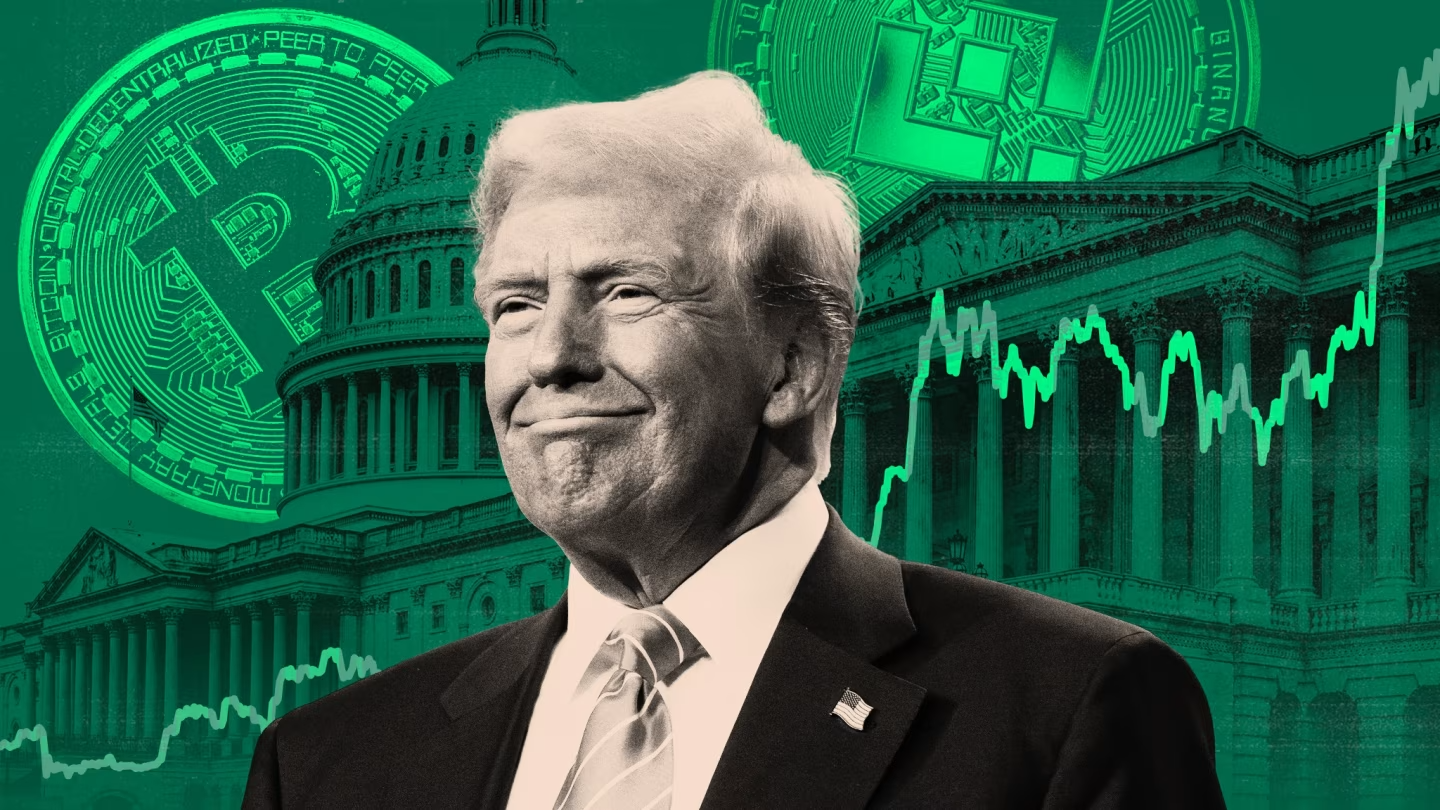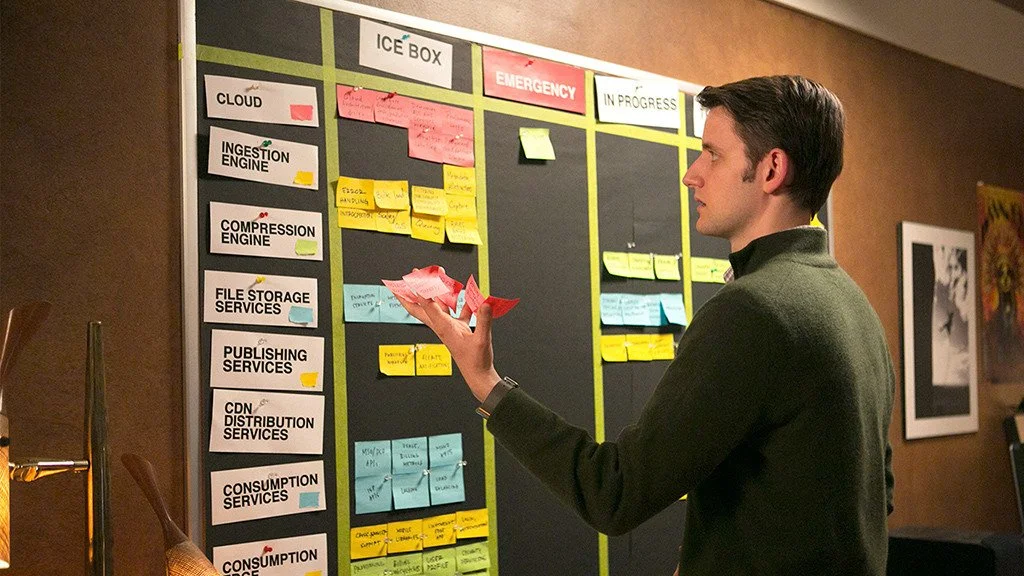
Insights
Trump's Treasury Just Nationalized Crypto to Loot Emerging Markets—And Your 401(k) Is Funding It
While America argued about pronouns and border walls, the Treasury Department executed the most audacious government power grab since the 2008 bailouts. And both parties helped.
The GENIUS Act—Trump's supposedly "pro-crypto" legislation signed in July—isn't crypto-friendly. It's a sophisticated scheme to force-feed government debt to the private sector, export inflation to the world's poorest countries, and guarantee that when it explodes, you'll pay for it.
The Discipline Dividend: Why Process Outperforms Hustle in Scaling Companies
Startup culture has a favorite myth. It tells us that hustle beats everything. That the first one in and the last one out wins. That the founder who works the hardest deserves to succeed.
It is a seductive story, and it is completely false.
In reality, the companies that win are not the ones with the hardest workers. They are the ones with the clearest systems. Hustle builds momentum. Discipline compounds it.
The Founder’s Shift: From Control to Clarity
Every founder begins with control. It is control that keeps the company alive in the early days. Control of the product, the pitch, the people, the brand. Control feels like survival.
But eventually, control starts to cost more than it saves. It slows decisions, frustrates teams, and traps the founder inside their own creation. The transition from control to clarity is the hardest shift any founder will ever make. It is also the most important one.
Why True Leadership Is Boring
Founders are told to inspire, disrupt, and move fast. The world celebrates visionary energy, late nights, and dramatic turnarounds. But when a company begins to scale, the leaders who endure are rarely the loudest in the room.
Beyond EOS: Building a Custom Operating System for Your Company
Entrepreneurial frameworks like EOS have done something remarkable.
They turned “process” into a conversation every founder wants to have. They gave structure to chaos, clarity to leadership, and discipline to growth.
But as companies scale, something changes. The very framework that brought alignment can start to feel rigid. The meetings get repetitive. The scorecards lose relevance. The structure begins to hold the company back instead of propelling it forward.
That’s the moment to evolve from following a system to building one.
The Cost of Chaos: Quantifying Inefficiency in Early-Stage Companies
Every founder worries about competition.
But for most startups, the real enemy is not the market. It is inefficiency.
The unspoken truth is that startups lose more value to disorganization than to any external threat. They burn time, energy, and focus through unstructured operations, unclear ownership, and reactive decision-making. By the time founders realize what is happening, the damage is already buried in the balance sheet.
Chaos has a cost, and in 2025, that cost is rising.
The Integrator’s Advantage
Every great founder has a moment when vision alone stops being enough.
The company is growing. Sales are up. The product is scaling. Yet progress feels heavier, slower, and more frustrating. What was once exciting now feels chaotic.
That moment signals a missing ingredient: the integrator.
When Startups Outgrow Their Founder
Every startup eventually reaches a moment when the founder becomes the bottleneck. What used to feel like leadership starts to feel like drag.
The Myth of the Visionary Founder
There is a powerful story still echoing through startup culture.
It’s the tale of the lone visionary — the Steve Jobs, the Elon Musk, the Jeff Bezos — whose brilliance alone bends markets and reshapes industries. Founders love this story because it validates belief, courage, and grit.
But brilliance without discipline is a brittle foundation.
The AI Bubble Is Coming — and Most Founders Are Counting on Bad Assumptions
If you’re building a startup in 2025 and your pitch deck doesn’t mention “agent” or “AI,” you’re already behind. But if your strategy assumes agents will replace people wholesale — that kind of confidence may be your undoing. The AI investment boom is entering bubble territory, and too many founders are blind to its cracks.
How to Audit Your Startup’s Agent Economy Before It’s Too Late
The new wave of startups is not hiring people, they are hiring agents. These digital workers, powered by large language models, now reconcile invoices, qualify leads, write code, and schedule marketing campaigns. What used to be an HR problem has become a data and budget problem.
AI Agents Will Replace 70% of Back-Office Staff - Are You Ready?
Every few years, the startup world gets a wake-up call about efficiency. In 2025, that wake-up call is coming from AI agents. These systems are not just chatbots or productivity gimmicks. They are fully capable digital workers that plan, reason, and act across tools, software, and APIs. Within two years, they could quietly replace most back-office roles that once filled finance, operations, and marketing departments.
Stop Buying Bloated C-Suites: Fractional Leaders Deliver Faster Results
Fractional executives deliver senior expertise without full‑time overhead or long‑tail liabilities.
Use them when you need outcomes and playbooks, not 40 hours of senior presence.
AI tools and agents are evolving too fast for single‑company leaders to keep up; portfolio experts bring fresher practices.
Start fractional now; convert to full‑time only when scope density stays high for months.
AI Agents Are Becoming the COO’s New Best Friend
In the last three months, “AI agents” have shifted from a buzzword to a working reality inside startups. These aren’t chatbots with fancy wrappers. They are systems that plan, act, and complete multi-step tasks across sales, finance, operations, and product. For startup founders, that means the difference between chasing efficiency and bleeding capital. For investors, it is a new litmus test of whether a company is spending wisely or just chasing hype.
Fintech Is Quietly Rewriting the Home Buy
The mortgage is no longer a paper chase. It is a data and user-experience problem. In 2025, fintech firms are finally solving both at scale. The past three months have been marked not by flashy consumer apps but by plumbing that compresses cycle times, widens access to credit, and monetizes the entire homeownership journey from pre-qualification to home equity loans. Investors who focus on the rails that remove friction for borrowers and costs for lenders will find this is an inflection point.
Founders, Your Equity Playbook Is Failing You — It’s Time to Pay Real Cash
The startup world is awash with stories about flashy equity grants and moonshot upside. But beneath the hype, the data is telling a harsher truth: equity alone will not retain your best people especially when they can collect real pay somewhere else.
A recent piece from DataDrivenVC showed that even when startups move salaries closer to market levels, voluntary turnover remains extremely high over 57 percent annually. They found that raising cash compensation in 2024 reduced voluntary turnover by about 31 percent. But that still leaves enormous churn.
Asking the Odds Is the Hard Question That Separates Founders Who Raise From Those Who Chase
Founders often enter a VC meeting with polished slide decks, revenue projections, market size claims and product demos. Few ask what may be the most revealing question: What are the odds you will invest in this round? That question forces clarity on both sides. It reveals whether you are pitching hope or possibility.
Recent deals show that clarity matters more than you think. Investors are increasingly backing companies that show transparency, conviction, and measurable paths forward. Those traits correlate strongly with successful funding rounds.
Here is what the data says. Here are examples of companies that succeeded recently. Here is how the “ask the odds” style plays into raising capital. And here is how founders and investors can use it to improve outcomes.
Nvidia’s RTX6000D Is a Signal to Investors: The Real AI Battle Is in Hardware
Nvidia’s China-compliant RTX6000D chip has landed with a thud. Designed to satisfy U.S. export controls, this neutered GPU was meant to maintain a foothold in the Chinese market without violating national security constraints. It has failed on both fronts.
Invest in Space and Defense or Watch American Strength Slip Away.
America faces a crossroads. The One Big Beautiful Bill Act has approved roughly $150 billion in new defense spending while billions more are flowing into space-based and satellite programs. What is clear is this: space and defense are no longer separate spheres. Together they form the backbone of U.S. sovereignty, innovation, and economic growth. Private investors and manufacturers must take notice—our national security and industrial future depend on it.
Title: America Is Surrendering the Space Race Without a Shot. It Starts With Manufacturing.
While Silicon Valley chases AI wrappers and digital tokens, a far more important race is unfolding above our heads. It is not about code or crypto. It is about hardware. Factories. Supply chains. America’s national security and technological edge are tied to one thing: our ability to manufacture for space, at scale, on our own soil.

Ready to transform your business?
Our advisors offer a wealth of expertise to take your business to new heights.





















